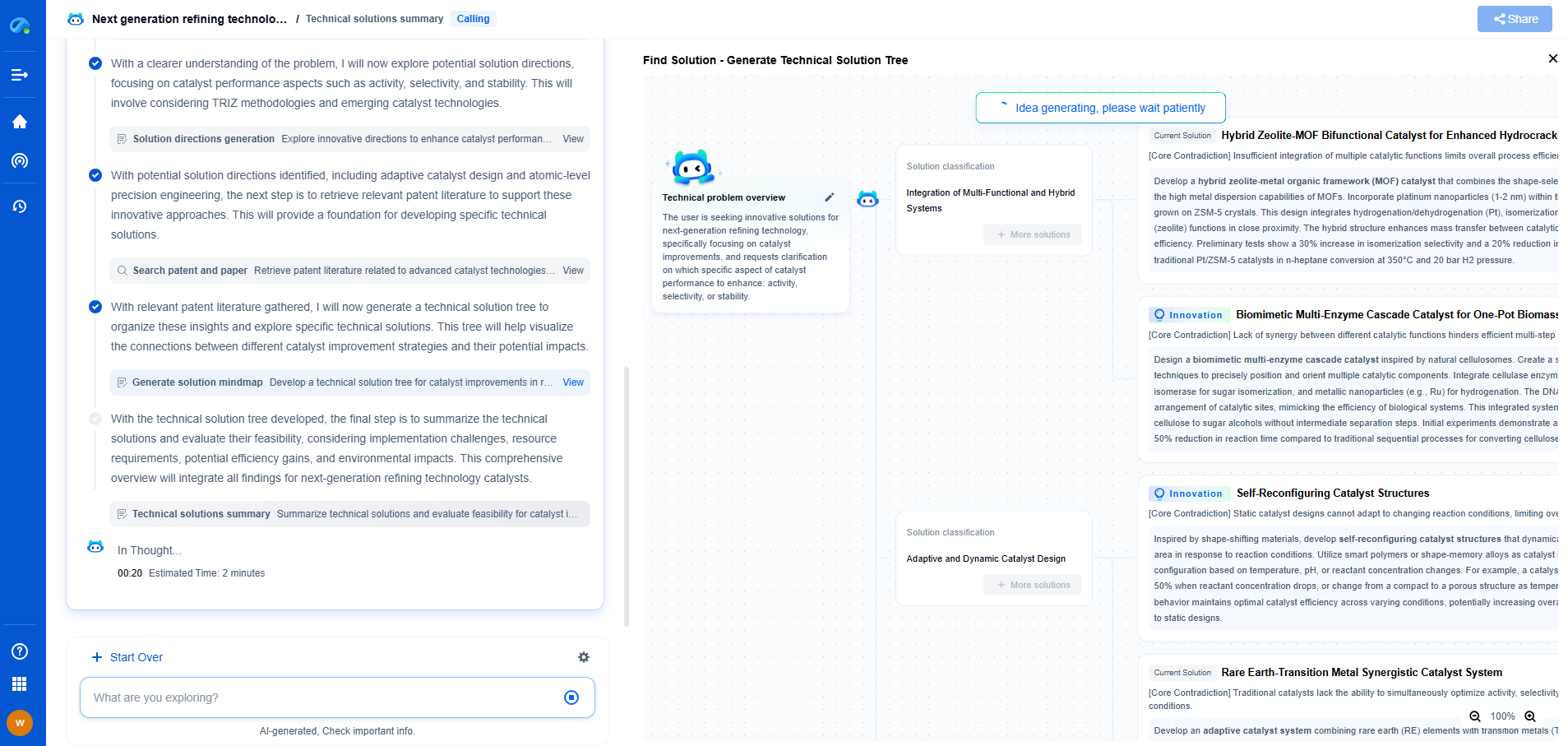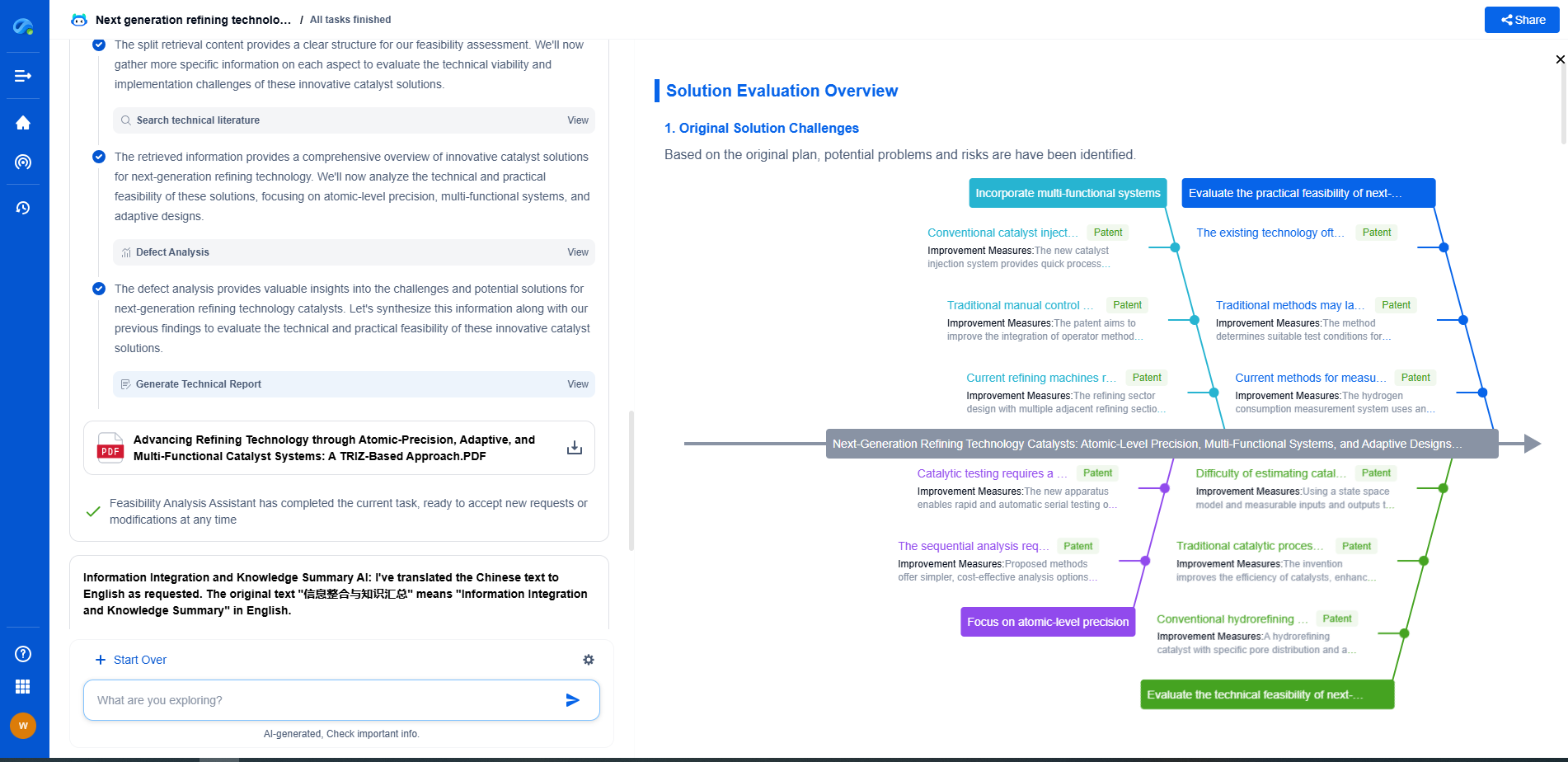What Causes Torque Converter Failure and How to Prevent It
JUL 2, 2025 |
The torque converter is an essential component of an automatic transmission system, serving as a bridge between the engine and the transmission. It allows the engine to spin somewhat independently of the transmission, providing a smooth transfer of power and enabling the vehicle to come to a stop without stalling. However, like any mechanical component, torque converters can fail over time. Understanding the causes of torque converter failure and knowing how to prevent it can save you from costly repairs and extend the life of your vehicle.
Causes of Torque Converter Failure
1. Overheating
One of the most common causes of torque converter failure is overheating. Excessive heat can occur due to factors like low transmission fluid levels, dirty or old transmission fluid, or a malfunctioning cooling system. When the transmission fluid overheats, it loses its ability to lubricate and cool the converter, leading to increased friction, wear, and eventual failure.
2. Contaminated Transmission Fluid
Transmission fluid contamination is another key factor in torque converter failure. Contaminants such as dirt, metal shavings, and other debris can enter the transmission system, causing damage to the torque converter and other components. These contaminants can restrict fluid flow, lead to improper lubrication, and promote excessive wear.
3. Solenoid Issues
The solenoid is responsible for regulating the flow of transmission fluid through the torque converter. If the solenoid malfunctions, it can cause improper fluid flow and pressure, leading to abnormal converter operation and potential failure. Electrical issues, such as damaged wiring or a faulty control module, can also affect solenoid performance.
4. Damaged Seals
Seals within the torque converter help maintain proper hydraulic pressure and fluid flow. Over time, these seals can become worn or damaged, often due to age or excessive heat. When seals fail, they can cause transmission fluid leaks, leading to reduced pressure and inadequate fluid flow, which can ultimately result in converter malfunction.
5. Faulty Torque Converter Clutch
The torque converter clutch engages and disengages to provide a direct connection between the engine and the transmission, improving fuel efficiency. If the clutch becomes worn or fails to engage properly, it can cause shuddering, slipping, or complete transmission disengagement, leading to potential failure of the torque converter.
Preventing Torque Converter Failure
1. Regular Maintenance
Regular maintenance is essential in preventing torque converter failure. Ensure that your vehicle's transmission fluid is checked and replaced according to the manufacturer's recommendations. Clean, high-quality fluid is crucial for proper lubrication and cooling, helping to prevent overheating and contamination.
2. Inspect and Repair Cooling Systems
Since overheating is a significant cause of torque converter failure, it's important to keep the transmission cooling system in good condition. Regularly inspect the radiator, cooling lines, and transmission cooler for any signs of leaks or blockages. Addressing any cooling system issues promptly can help maintain optimal operating temperatures.
3. Address Transmission Fluid Leaks
Transmission fluid leaks can lead to low fluid levels, resulting in inadequate lubrication and cooling. Regularly inspect your vehicle for any signs of leaks and address them immediately. Keep an eye on fluid levels and top off as needed to ensure the system operates effectively.
4. Monitor Transmission Performance
Pay attention to how your vehicle's transmission performs. If you notice unusual sounds, shuddering, slipping, or delayed gear engagement, it could indicate an issue with the torque converter. Promptly addressing these symptoms can prevent further damage and potential converter failure.
5. Professional Inspections
Regular professional inspections can help detect potential issues before they become significant problems. A qualified technician can identify early signs of torque converter problems and provide the necessary repairs or maintenance to prevent failure.
In conclusion, understanding the causes of torque converter failure and implementing preventive measures can greatly extend the lifespan of your vehicle's transmission system. Regular maintenance, addressing potential issues promptly, and seeking professional inspections are key steps in keeping your torque converter and overall vehicle running smoothly.
Boost Innovation in Gears & Transmissions with Patsnap Eureka
Whether you're designing a next-gen planetary gearbox or optimizing gear tooth profiles for noise reduction, keeping up with the fast-evolving landscape of mechanical transmissions requires more than just experience—it takes insight, speed, and smart tools.
Patsnap Eureka, our intelligent AI assistant built for R&D professionals in high-tech sectors, empowers you with real-time expert-level analysis, technology roadmap exploration, and strategic mapping of core patents—all within a seamless, user-friendly interface.
Whether you're streamlining a manual transmission system or exploring electromechanical actuation, Patsnap Eureka helps your team move from concept to novelty faster than ever.
👉 Experience Eureka in action—request a personalized demo today and see how AI can revolutionize your gear innovation workflows.
- R&D
- Intellectual Property
- Life Sciences
- Materials
- Tech Scout
- Unparalleled Data Quality
- Higher Quality Content
- 60% Fewer Hallucinations
Browse by: Latest US Patents, China's latest patents, Technical Efficacy Thesaurus, Application Domain, Technology Topic, Popular Technical Reports.
© 2025 PatSnap. All rights reserved.Legal|Privacy policy|Modern Slavery Act Transparency Statement|Sitemap|About US| Contact US: help@patsnap.com

